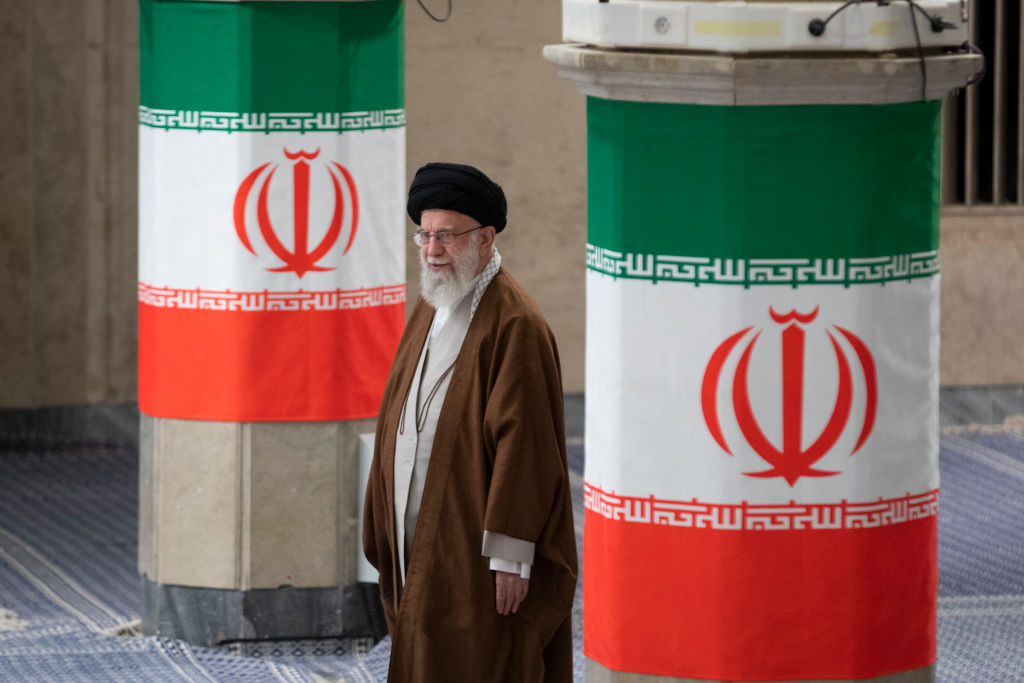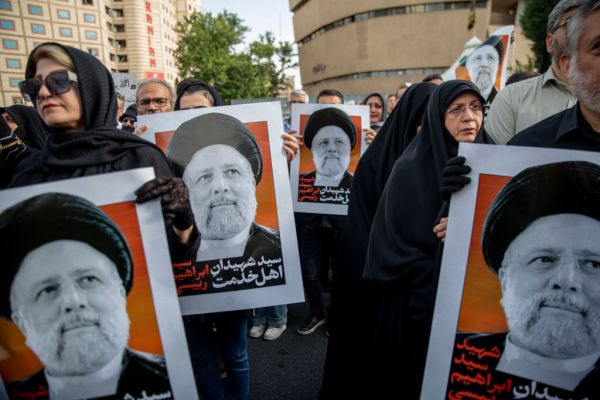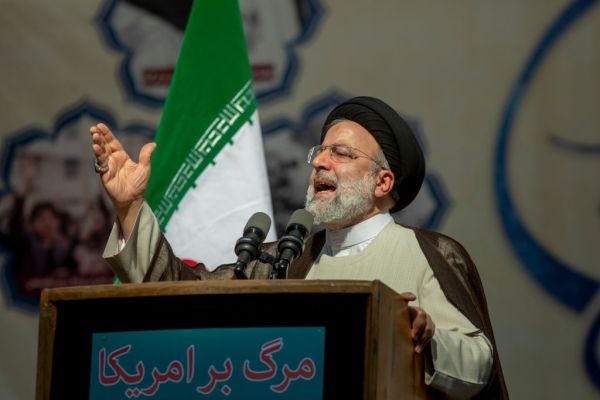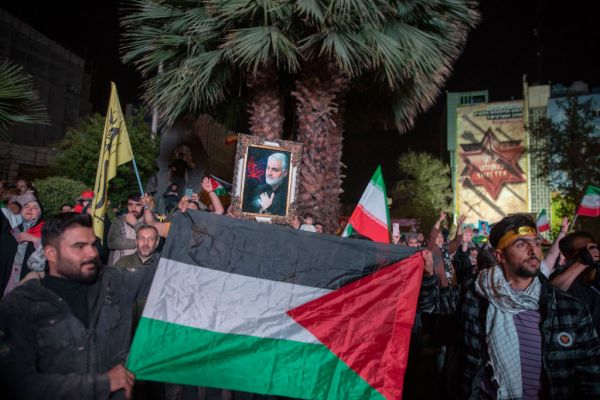TEL AVIV, Israel—The May 19 death of Iranian President Ebrahim Raisi brought renewed attention to Iran’s looming succession crisis. After more than three decades of consolidating his own power as Iran’s final decision-maker, 85-year-old Supreme Leader Ayatollah Ali Khamenei may have laid the groundwork for regime infighting and popular unrest in the event of his death.
Raisi’s death in a helicopter crash earlier this month left Iran without its top contender to replace Khamenei. A hardline cleric with experience heading the judiciary before claiming the presidency in 2021, Raisi was also “considered a loyal lieutenant to Iran’s supreme leader,” Jason Brodsky, the policy director for the think tank United Against Nuclear Iran, told The Dispatch. “And no other person in the Islamic Republic’s political elite has been able to claim they presided over two branches of government like Raisi has, so that is a loss for the system.”
Now, the supreme leader’s hope for a smooth succession to protect both his legacy and the long-term stability of the Islamic Republic is far from assured. Khamenei’s second-eldest son, Mojtaba, has been named as his father’s possible replacement, but his appointment could cause divisions among the regime’s elite and pushback from its core support base. And among the Iranian people, no candidate can overcome decades of intensifying opposition to the revolutionary government.
Accordingly, the question of Khamenei’s heir apparent is “one of the most classified issues in Iran,” Meir Javedanfar, Iranian politics lecturer at Reichman University in Herzliya, Israel, said in an interview with The Dispatch. “The very fact that the regime is keeping the issue of Khamenei’s succession a top secret shows that it’s very worried about the consequences of revealing the candidates before Khamenei dies, because it will lead to infighting.”
Khamenei’s own ascent to Iran’s supreme leadership may prove instructive. The once-fringe figure was not the first choice of revolutionary leader Ruhollah Khomeini, who in 1985 named Ayatollah Hussein-Ali Montazeri as his deputy supreme leader and successor. But Montazeri became disillusioned with the regime near the end of Khomeini’s life, leading to his falling out with the ayatollah and leaving the Islamic Republic without a clear choice for supreme leader after its founder’s death in 1989. Khamenei, who held the ceremonial position of president at the time, came to power as a compromise candidate.
In the years that followed, however, Khamenei systematically purged his potential rivals—some through political bans, and others via suspected assassinations. Ahmad Khomeini, son of the late ayatollah and a powerful player in the supreme leader’s office, was sidelined by Khamenei before dying at age 49 of reported cardiac arrest in 1995—under what many believe were suspicious circumstances. Akbar Rafsanjani, Iran’s president between 1989 and 1997 and one of the revolutionary government’s most influential figures, likewise died suddenly of suspected poisoning in 2017.
“Look at it as Lenin versus Stalin. Khamenei really became the Stalin of the Islamic Republic,” Shay Khatiri, a vice president and senior fellow of the military affairs think tank Yorktown Institute, told The Dispatch. “Khomeini was the guy who created the revolution and died soon after. And then it became Khamenei’s regime, and a much more oppressive one.”
With Khamenei having spent decades molding the supreme leadership into a position of virtually unchecked power, the precedent he set makes picking the next leader all the more difficult. Power brokers within the regime—foremost among them the Islamic Revolutionary Guard Corps (IRGC) and the clergy—are unlikely to agree on a compromise candidate who could turn on them after he assumes the post.
With Raisi out of the picture, the likeliest outcome following the supreme leader’s death may be the creation of a council to assume his responsibilities, Khatiri argues. “Unless one side, such as the IRGC, really manages, through intimidation and other means, to force his guy through, it is very unlikely that any of the current actors would make compromises on one person,” he said. “What they’re going to say is, ‘Khomeini and Khamenei were otherworldly men. Their virtues are clear to all of us. Is there anybody on earth who reaches the level of their virtues? No, of course not. So we need a group of men who combined have the wisdom and the virtues that these two men had.’”
But if running Iran remains a one-man job, Mojtaba Khamenei may be the likeliest contender to replace his father. The 55-year-old holds no official title but has grown his power within the regime as a close confidant of the elder Khamenei. He also has an extensive clerical background, a prerequisite for the job, and deep connections to the country’s security and intelligence apparatus.
In 2009, Mojtaba helped rig Iran’s presidential contest in favor of Mahmoud Ahmadinejad, whose reelection set off a series of protests known as the Green Movement as supporters of second-place finisher Mir-Hossein Mousavi took to the streets. Mojtaba Khamenei also was allegedly involved in violently suppressing the demonstrations. He was sanctioned by the U.S. in 2019 for working with the IRGC Quds Force and the Basij—a plainclothes paramilitary force known for violently suppressing protests—to “advance his father’s destabilizing regional ambitions and oppressive domestic objectives.”
But Mojtaba’s selection as supreme leader would risk isolating the regime’s already small base of supporters, which may see it as a continuation of the deposed shah’s hereditary system of rule. Such a move may also provoke another mass uprising of the kind Iran has witnessed nearly every year since 2018. “The regime has to take into consideration the question of stability once the new successor is announced,” Javedanfar said.
But Khatiri, himself a participant in the 2009 Green Movement, thinks the death of Khamenei alone will be enough to bring Iranians to the streets.
“Such a gigantic event would undoubtedly cause a huge popular uprising. Now, it is possible that the regime has already prepared for such a scenario to immediately crack down on it. So whether it will be successful or not is a separate question,” he said. “But it will happen regardless of whom they announce, because the people are not fed up with Khamenei—the people are fed up with the system. It is the theocracy they oppose.”









Please note that we at The Dispatch hold ourselves, our work, and our commenters to a higher standard than other places on the internet. We welcome comments that foster genuine debate or discussion—including comments critical of us or our work—but responses that include ad hominem attacks on fellow Dispatch members or are intended to stoke fear and anger may be moderated.